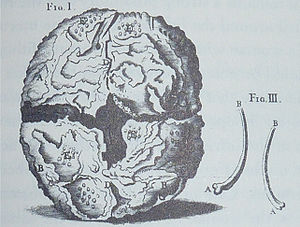 |
| English: Integration of Quanitative Data for Qualitative Analysis and Mixed Methods Research in a Web Based Computer Aided Qualitative Data Analysis Software (CAQDAS) (Photo credit: Wikipedia) |
A friend who has been following the blog posts on qualitative research archiving, sent me an email with some great questions. I am going to post them here and use them as musing points.
A
couple questions...
1.
Perhaps I've missed it along the way (it's entirely possible!)... WHY is it
important to and why should we archive qualitative data? For many studies, do
the field notes and recordings of interviews/interactions and images and
elicitations have meaning outside the context of the researcher/participant
relationship?
This is a very intriguing question...I would actually split it into two parts:
1. WHY should we archive qualitative data?
For years, I personally have been baffled by the fact that qualitative researchers in many fields are tossing out all their data as if it would produce a deadly virus 5 years after collection. This was not the case in anthropology where they were trying to salvage dying cultures...it was OK for them to go back again and again and save everything. Whether or not their collections are archived kind of depends upon the fame of the scholar and the importance of the area they studied...to someone.
But, and I think it was in the more sociologically dominated area of
qualitative research we began to think with the medical model created
for taking human samples. You have a short amount of time to work with
the material, and then it is gone. So,it does emphasize, I guess the
ephemeral notion of what led to the data...that moment has passed; it
will never come again?
Maybe this is a part of why qualitative researchers seem resistent to the notion of thinking about databases?
However, the people that pay for these studies--policymakers and government institutions have finally figured out that this is very costly. I'll post some materials later related to recently policy decisions in the EU and UK and have changed the tide. The US is also following suit.
From the point of view of teaching QR, we have never had good databases of mature projects that we could use with students. So, essentially we seldom get beyond teaching data collection 101...we lack examples of full projects to examine. (And then what is a full project...the raw data? Material organized in a software program?)
2. and then...why should the data collected in the interaction of researcher/participant relationship have meaning beyond that point?
This is a fascinating point to raise. There is a strong bias among many qualitative researchers in this direction--if you weren't there; you just don't know. But if we agree to that point, then what can we ever know about the events where we weren't there and were not a direct party to the interaction? I think there are different kinds of knowing: primary experience is great, but secondary analysis has value too. You shouldn't confuse the two; you would need to have some caveats about what one can ascertain from archived data vs data you collected yourself.
Where would historians be if they didn't agree that secondary analysis of data can be useful? As we try to make sense of Greek culture, for instance, we review the reviews of the reviews of the reviews every generation, persistently reanalyzing our interpretations. No, we were not there, but we still have a lot to say about the time and place that has value.
2.
If it is important to archive our data (presumably to make it available to
others???) how do we approach this at the time of seeking ethics/IRB approval,
especially given that most expect you to destroy "data" after 3-5
years? What are the ethical implications of preserving and archiving
qualitative data that in many cases could be tied back to the participant,
possibly identifying them?
Well, this is the 1 million $$ question, isn't it--how do we do this ethically? What does it mean to create a data management plan with intent to archive not destroy? I think this is why we need to get in right now and start adding our 2 cents to the discussion. I don't think there is going to be any going backwards on this one--the horse has left the barn--but we can participate in discussions about useage.
Standards we might have to create include:
1. How do we develop an informed consent process that includes the aim to archive?
2. How do you scrub data so that it meets the standard of privacy you established with your participants? What does that mean if you are archiving just the raw data? the software embedded version? or distributed data collection that included various net-based tools?
3. How might levels of permission be structured?
Is
this mostly about "open data" formats or it is about access to source
data by researchers 5, 10, 20, 200 years down the road?
[I had just written a great response to this and my connection timed out and I lost it...here goes again]
One of the very important underlying questions here is the quality of your archive? What standards are they following? Are they recognized? Where is the data housed? If you are an American and your data is housed in servers in another country--do they recognize the same standards you must abide by? or visa-versa?
More to come on policies that are already changing our world on this topic.
:)









